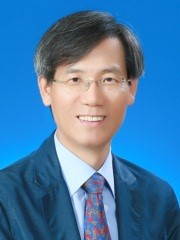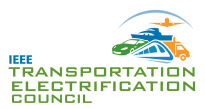September 2017
Electric vehicles (EVs) offer a promising solution to electrify transportation for potential greenhouse gas reductions and cost savings. EVs are also identified as flexible resources for grid integration with the ability to mitigate the increasing complexity issues of the grid, e.g., the duck curve caused by increasing penetration of renewables. The BP Energy Outlook predicts that about 100 million EVs will be on the road worldwide by 2035 [1].
by Federico Duperly and Alison Bayzat
EcoCAR 3 is the latest installment in the Advanced Vehicle Technology Competition (AVTC) series, hosted by General Motors and the US Department of Energy, and managed by Argonne National Laboratory. This competition challenges students from 16 schools across North America to transform a 2016 Chevrolet Camaro into a hybrid vehicle, while maintaining its consumer appeal and living up to the “Camaro” legacy.
About the Newsletter
Editors-in-Chief

Jin-Woo Ahn
Co-Editor-in-Chief

Sheldon Williamson
Co-Editor-in-Chief
TEC Call for Articles 2023 - Advances in Charging Systems
The TEC eNewsletter is now being indexed by Google Scholar and peer-reviewed articles are being submitted to IEEE Xplore.
To submit an article click here.


